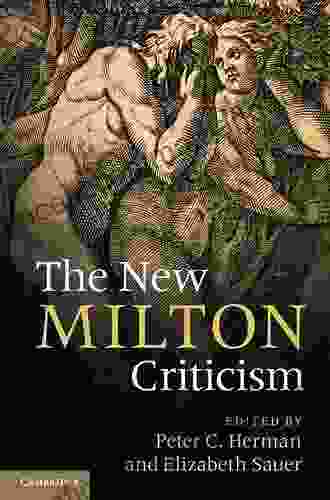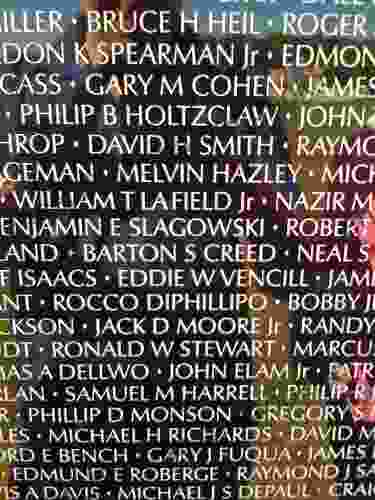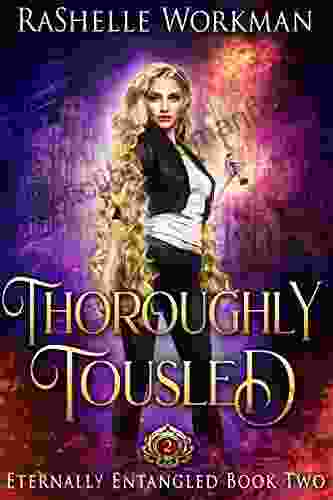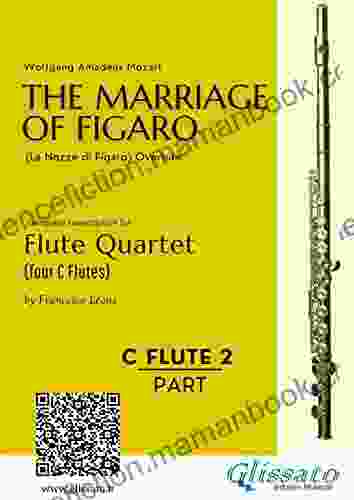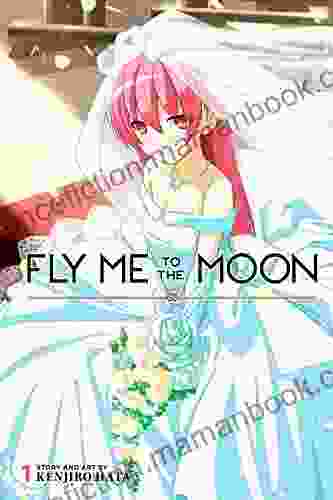Unveiling the New Milton Criticism: A Comprehensive Exploration of John Milton's Literary Genius

John Milton, the towering figure of English Renaissance literature, has captivated readers and scholars alike with his epic masterpiece, 'Paradise Lost.' For centuries, Milton's complex and profound work has been subjected to a myriad of critical interpretations, each seeking to unravel its multifaceted layers. Amidst the vast tapestry of Milton scholarship, the emergence of the New Milton Criticism in recent decades has revolutionized our understanding and appreciation of the poet's genius.
5 out of 5
| Language | : | English |
| File size | : | 1140 KB |
| Text-to-Speech | : | Enabled |
| Screen Reader | : | Supported |
| Enhanced typesetting | : | Enabled |
| Word Wise | : | Enabled |
| Print length | : | 267 pages |
This article serves as a comprehensive exploration of the New Milton Criticism, providing a detailed overview of its principles, proponents, and the profound impact it has had on our understanding of 'Paradise Lost.' We will delve into the transformative insights offered by this critical approach, examining how it sheds new light on Milton's literary techniques, religious beliefs, and the enduring legacy of his work.
Principles of the New Milton Criticism
The New Milton Criticism emerged in the late 20th century as a departure from traditional approaches to Milton studies. It is characterized by a focus on the interplay between Milton's literary artistry and the historical, cultural, and theological contexts in which he wrote. Key principles of this critical approach include:
- Interdisciplinary Perspective: The New Milton Criticism draws upon insights from various disciplines, including history, theology, philosophy, and art history, to provide a comprehensive understanding of Milton's work.
- Historical Contextualization: This approach places Milton's writing firmly within the religious, political, and social upheavals of the 17th century English Civil War, allowing for a deeper understanding of his themes and motives.
- Focus on Language and Form: The New Milton Criticism pays meticulous attention to Milton's innovative use of language, imagery, and poetic structures, revealing the intricate craftsmanship that underpins his verse.
- Religious Interpretation: While recognizing the profound influence of Christianity on Milton's work, this critical approach avoids simplistic readings, seeking instead to explore the complexities and ambiguities of his religious beliefs.
Proponents of the New Milton Criticism
A constellation of renowned scholars has been instrumental in shaping and advancing the New Milton Criticism. Among its notable proponents are:
- Stanley Fish: A leading figure in literary theory, Fish's work on Milton examines the ways in which readers' interpretations are shaped by their own beliefs and preconceptions.
- John Guillory: Guillory's Marxist-influenced criticism focuses on the social and political dimensions of Milton's writing, exploring how it reflects the class struggles and economic transformations of his time.
- William Empson: Empson's influential work on 'Paradise Lost' analyzes the poem's complex language, ambiguity, and intricate patterns of imagery.
- Barbara Lewalski: Lewalski's research delves into Milton's religious thought, exploring the complexities of his beliefs and their relationship to his literary output.
Impact on the Understanding of 'Paradise Lost'
The New Milton Criticism has had a profound impact on the way we read and understand 'Paradise Lost.' By bringing to light the historical, cultural, and theological contexts that shaped Milton's work, this critical approach has led to:
- Enhanced Appreciation for Literary Craftsmanship: The New Milton Criticism highlights Milton's mastery of language, form, and imagery, revealing the exquisite craftsmanship that underpins his epic poem.
- Greater Understanding of Milton's Religious Views: This approach provides a more nuanced understanding of Milton's complex religious beliefs, recognizing the interplay between his Puritan heritage and the broader religious and philosophical currents of his time.
- Broader Historical Contextualization: By placing 'Paradise Lost' within the tumultuous events of the English Civil War, the New Milton Criticism illuminates the ways in which Milton's work responded to and reflected the political and social upheavals of his era.
- Recognition of Multiple Interpretations: This critical approach embraces the idea that there is no single, definitive interpretation of 'Paradise Lost,' allowing for a diversity of perspectives and interpretations.
Contemporary Relevance
The principles and insights of the New Milton Criticism remain highly relevant in today's literary landscape. This critical approach encourages us to:
- Engage with Literature Critically: The New Milton Criticism challenges us to read literature not as passive consumers but as active participants who bring their own knowledge, experiences, and perspectives to the act of interpretation.
- Seek Interdisciplinary Connections: By drawing upon insights from various disciplines, this critical approach models the importance of interdisciplinary thinking in literary studies.
- Embrace Ambiguity and Complexity: The New Milton Criticism encourages us to accept ambiguity and complexity in literature, recognizing that great works of art often defy easy categorization or simple interpretations.
- Consider the Historical and Cultural Contexts: This approach reminds us of the profound influence that history, culture, and social contexts have on literary works, inviting us to explore the connections between literature and the broader human experience.
The New Milton Criticism is a transformative approach to understanding and interpreting the works of John Milton, particularly his magnum opus 'Paradise Lost.' By embracing interdisciplinarity, historical contextualization, and a rigorous analysis of literary techniques, this critical approach has revolutionized our understanding of Milton's literary genius. The principles of the New Milton Criticism remain highly relevant today, encouraging us to engage with literature critically, embrace ambiguity, and explore the profound connections between literature and the human experience. As we continue to delve into the intricacies of Milton's work, the New Milton Criticism will undoubtedly serve as an invaluable guide, fostering our appreciation for his enduring legacy.
References
- Fish, Stanley. Surprised by Sin: The Reader in Paradise Lost. Harvard University Press, 1997.
- Guillory, John. Milton and the Idea of History. University of California Press, 1988.
- Empson, William. Some Versions of Pastoral. Chatto & Windus, 1935.
- Lewalski, Barbara Kiefer. Milton's Brief Epic: The Genre, Meaning, and Art of Paradise Regained. Stanford University Press, 2003.
5 out of 5
| Language | : | English |
| File size | : | 1140 KB |
| Text-to-Speech | : | Enabled |
| Screen Reader | : | Supported |
| Enhanced typesetting | : | Enabled |
| Word Wise | : | Enabled |
| Print length | : | 267 pages |
Do you want to contribute by writing guest posts on this blog?
Please contact us and send us a resume of previous articles that you have written.
 Top Book
Top Book Novel
Novel Fiction
Fiction Nonfiction
Nonfiction Literature
Literature Paperback
Paperback Hardcover
Hardcover E-book
E-book Audiobook
Audiobook Bestseller
Bestseller Classic
Classic Mystery
Mystery Thriller
Thriller Romance
Romance Fantasy
Fantasy Science Fiction
Science Fiction Biography
Biography Memoir
Memoir Autobiography
Autobiography Poetry
Poetry Drama
Drama Historical Fiction
Historical Fiction Self-help
Self-help Young Adult
Young Adult Childrens Books
Childrens Books Graphic Novel
Graphic Novel Anthology
Anthology Series
Series Encyclopedia
Encyclopedia Reference
Reference Guidebook
Guidebook Textbook
Textbook Workbook
Workbook Journal
Journal Diary
Diary Manuscript
Manuscript Folio
Folio Pulp Fiction
Pulp Fiction Short Stories
Short Stories Fairy Tales
Fairy Tales Fables
Fables Mythology
Mythology Philosophy
Philosophy Religion
Religion Spirituality
Spirituality Essays
Essays Critique
Critique Commentary
Commentary Glossary
Glossary Bibliography
Bibliography Index
Index Table of Contents
Table of Contents Preface
Preface Introduction
Introduction Foreword
Foreword Afterword
Afterword Appendices
Appendices Annotations
Annotations Footnotes
Footnotes Epilogue
Epilogue Prologue
Prologue Kate Ellis
Kate Ellis Don Lattin
Don Lattin Charles A Perrone
Charles A Perrone William F Aicher
William F Aicher Marly Bird
Marly Bird Skyler Snow
Skyler Snow Angelina Feldman
Angelina Feldman H L Carter
H L Carter Shashank Nigam
Shashank Nigam K F Breene
K F Breene Arthur J Stewart
Arthur J Stewart Jacqueline P Vincent
Jacqueline P Vincent Sara Orwig
Sara Orwig Jennifer J J Jang
Jennifer J J Jang Ashley Mears
Ashley Mears Monica Sweeney
Monica Sweeney Jim Norton
Jim Norton Erin Lowry
Erin Lowry Stephanie Sloane
Stephanie Sloane Rosemary Sutcliff
Rosemary Sutcliff
Light bulbAdvertise smarter! Our strategic ad space ensures maximum exposure. Reserve your spot today!
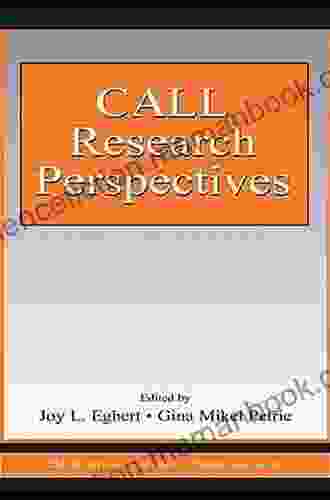
 Arthur MasonExploring the Enigmatic World of Creativity in Language Teaching: Unveiling...
Arthur MasonExploring the Enigmatic World of Creativity in Language Teaching: Unveiling... Elton HayesFollow ·5.3k
Elton HayesFollow ·5.3k Jorge Luis BorgesFollow ·3.4k
Jorge Luis BorgesFollow ·3.4k Henry JamesFollow ·6.7k
Henry JamesFollow ·6.7k Leo TolstoyFollow ·13.6k
Leo TolstoyFollow ·13.6k Tony CarterFollow ·5.3k
Tony CarterFollow ·5.3k Ron BlairFollow ·17.5k
Ron BlairFollow ·17.5k Shane BlairFollow ·10.5k
Shane BlairFollow ·10.5k Virginia WoolfFollow ·8.2k
Virginia WoolfFollow ·8.2k

 Ashton Reed
Ashton ReedClean(ish) Food for People Who Like to Eat Dirty
By: [Your Name] Are...
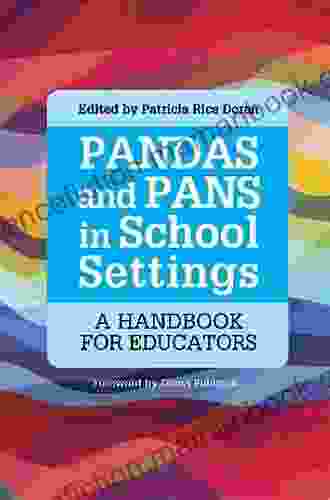
 Ronald Simmons
Ronald SimmonsThe Handbook for Educators: A Comprehensive Guide to...
The Handbook for...
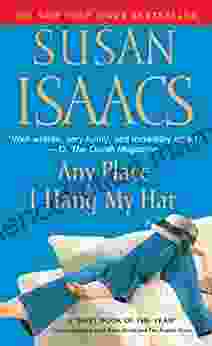
 Derrick Hughes
Derrick HughesAny Place Hang My Hat: A Hauntingly Beautiful Novel by...
A Masterpiece of...
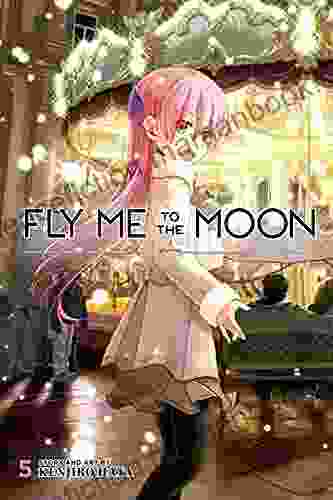
 Adrien Blair
Adrien BlairFly Me to the Moon Vol. 5: A Lunar Odyssey through...
In the vast...

 William Powell
William PowellTips By Gardeners On Variety Of Subjects
Gardening...
5 out of 5
| Language | : | English |
| File size | : | 1140 KB |
| Text-to-Speech | : | Enabled |
| Screen Reader | : | Supported |
| Enhanced typesetting | : | Enabled |
| Word Wise | : | Enabled |
| Print length | : | 267 pages |


